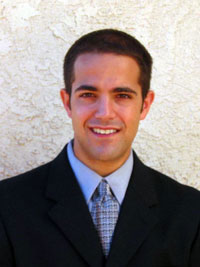| Posted: August 4, 2009 |
New NSF award funds polymer nanocomposites research |
|
(Nanowerk News) Eric Cochran, an associate scientist at the U.S. Department of Energy’s Ames Laboratory, has received a National Science Foundation CAREER award, the organization’s most prestigious award for junior researchers.
|
|
The NSF CAREER award recognizes researchers who exemplify the role of teacher-scholars through outstanding research, excellent education and the integration of education and research. The five-year, $475,000 award will support Cochran’s research work in Iowa State University’s chemical and biological engineering department. Cochran will explore a new class of self-organizing block copolymer nanocomposites based on polymer-tethered clays.
|
 |
| Eric Cochran
|
|
“I am excited and honored that the NSF has chosen to support this research through the CAREER award,” said Cochran. “This is an important opportunity to explore a unique system of materials with potential for enormous impact in the field of polymer physics. Through this grant, I will also be better able to share my enthusiasm for research with teachers and students throughout Iowa.”
|
|
At Ames Laboratory, Cochran is part of an interdisciplinary research team that is integrating polymers and nanoscale particles to create self-assembling materials for use in solar cells and hydrogen fuel cells. The work is funded by Ames Laboratory’s seed funding program, which supports new interdisciplinary collaborations between Ames Lab scientists and junior researchers at Iowa State University.
|
|
Cochran, who is an ISU assistant professor of chemical and biological engineering, earned a doctoral degree in chemical engineering from the University of Minnesota in 2004. While at the University of Minnesota, he received a graduate research fellowship from the National Science Foundation. In 2006 he was selected for the ISU Camille and Henry Dreyfus New Faculty Award, and in 2004 he received the Frank J. Padden Jr. Award for Excellence in Polymer Physics from the American Physical Society.
|

